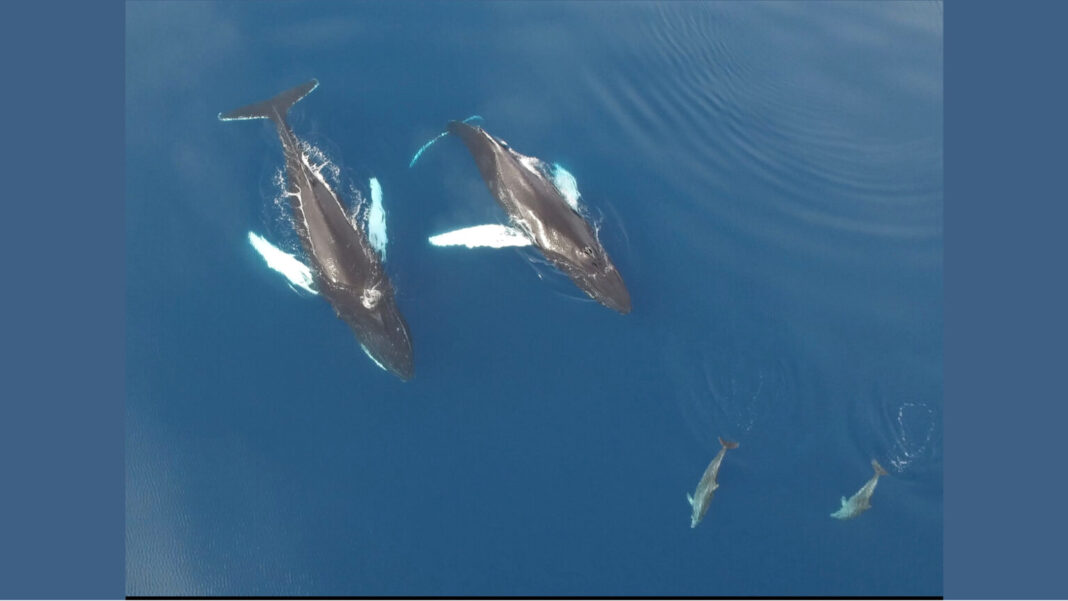World Whale Day, celebrated on the third Sunday of February each year, brings attention to the critical importance of these marine mammals. In marking the occasion, United Kingdom-based marine mammal expert Eric Hoyt, Research Fellow with Whale and Dolphin Conservation and Co-Chair of the International Union for Conservation of Nature (IUCN) IUCN Marine Mammal Protected Areas Task Force, highlights the vital role whales play in maintaining healthy ocean ecosystems and combating climate change.
“Whales are like ecosystem engineers,” explained Hoyt, describing how these marine mammals contribute to ocean health. “They turn over an enormous amount of matter because they are feeding on species at the surface, and then they’re defecating, going to the bottom. They’re also diving deep into the water column and coming up, so they’re disturbing the nutrients. All of that mixing of the currents is important for the diversity of many other species.”
The impact of historical whaling practices continues to affect ocean ecosystems today. “What happened with whaling was we removed one of those keystone primary important species from the mix. It was really to the detriment of humans when you think about it,” Hoyt said.
While some species like humpbacks and sperm whales are showing signs of recovery 30-50 years after the end of intensive whaling, others, such as the North Atlantic right whale and blue whales, are still struggling to rebuild their populations.
In response to these challenges, Hoyt and his colleagues have spent the past decade developing Important Marine Mammal Areas (IMMAs), a scientific tool to identify crucial habitats for marine mammals worldwide. These areas are selected based on where whales breed, feed, travel, and raise their young.
The recently designated Eastern Caribbean IMMA, spanning from Anguilla to Grenada, stands out for its notable biodiversity.
“The Eastern Caribbean Islands IMMA is a very special one. The diversity of species is really extraordinary,” said Hoyt. “It has the sperm whales that are well-known, with three different cultural clans through the Eastern Caribbean. There’s something like more than 20 species of whales and dolphins found in this area.”
While IMMAs don’t carry legal authority, they’re increasingly influencing maritime activities. Major shipping companies are using IMMA data to reduce whale strikes, and the US Navy has designated these areas as no-go zones for low-frequency sonar testing. These voluntary measures demonstrate how scientific identification of important habitats can lead to practical conservation outcomes.
Looking ahead, whales may play an even more critical role in our understanding of climate change impacts on marine ecosystems. “If you’ve got lots of whales and dolphins in your waters and they’re not obviously dying, stranding on beaches and having a lot of problems, that’s an indication that you’re doing okay with your ocean,” Hoyt said. These marine mammals serve as indicator species, offering early warnings about changes in ocean health.
The protection of whale habitats not only benefits marine ecosystems but also supports local economies through whale-watching tourism. As Hoyt noted, “The value of whales alive is that you can see a whale many times and appreciate it as long as you do it carefully. And that can bring in foreign currency as well as enjoyment to local communities.”




